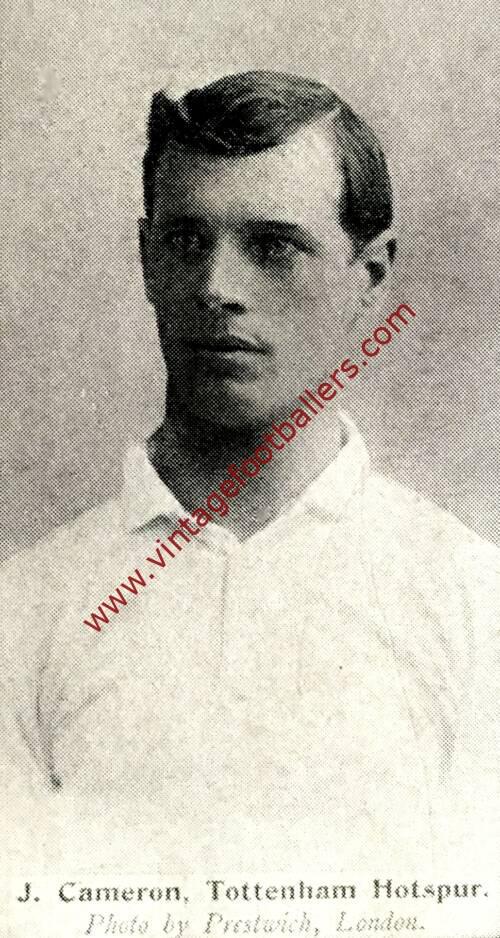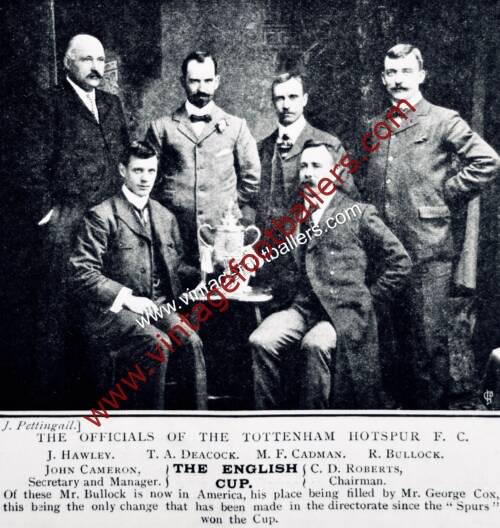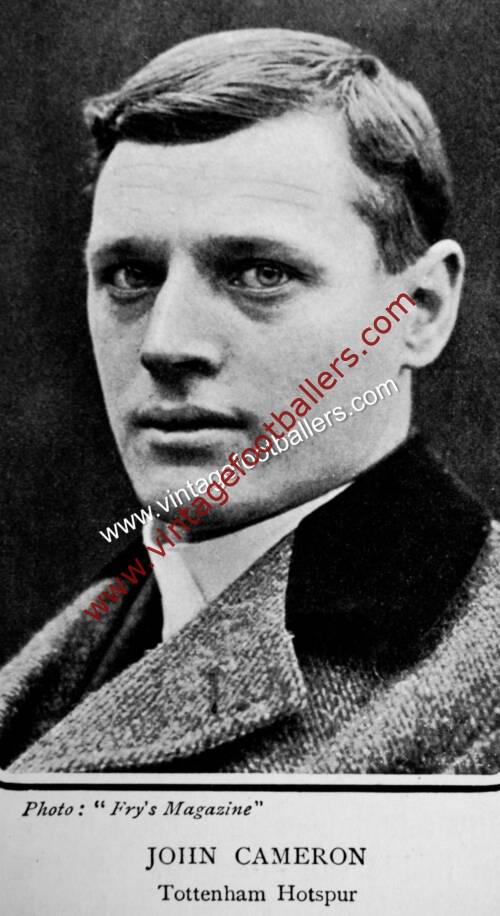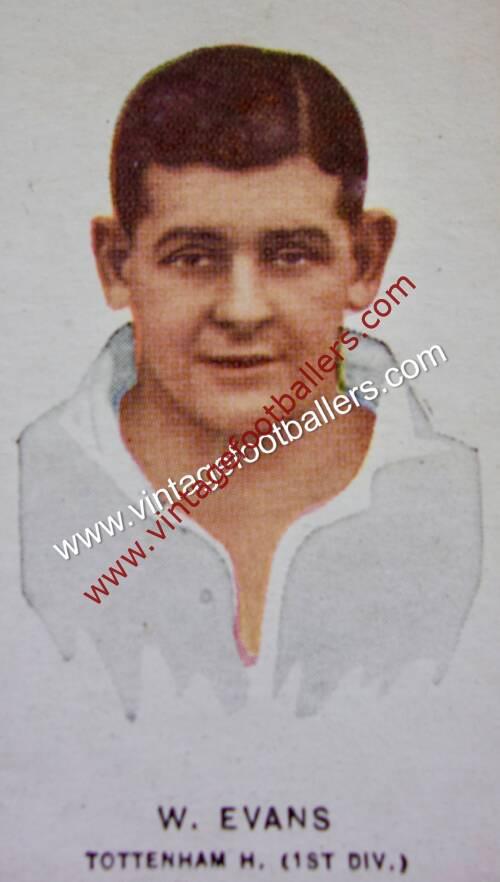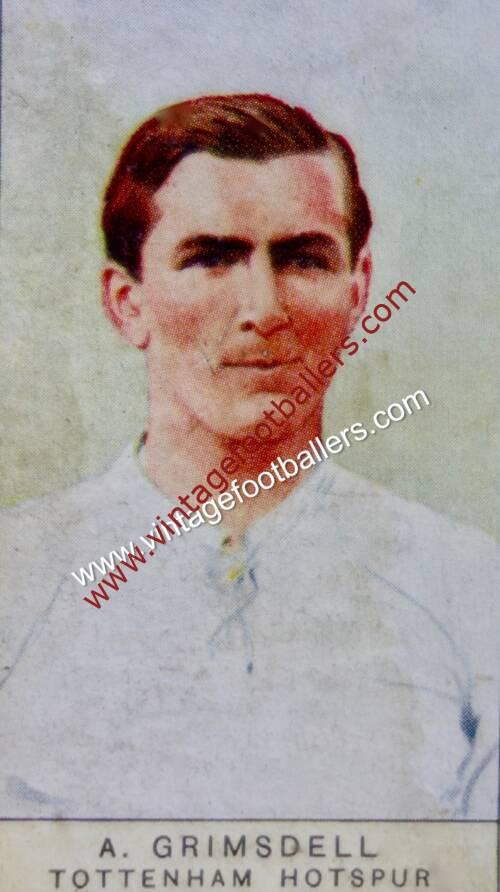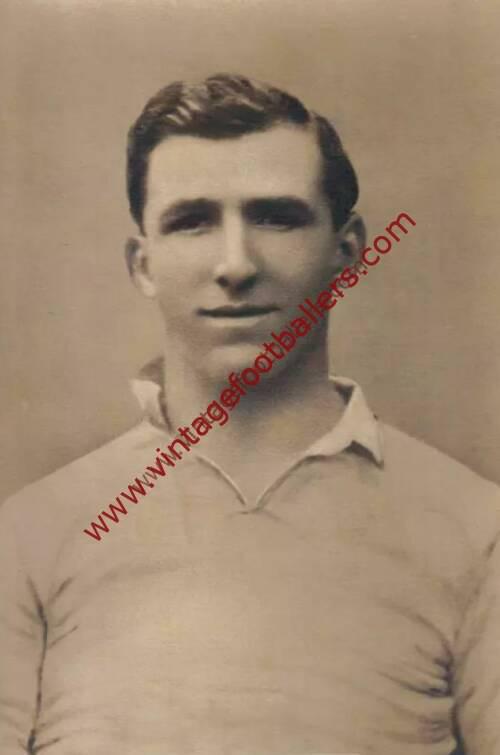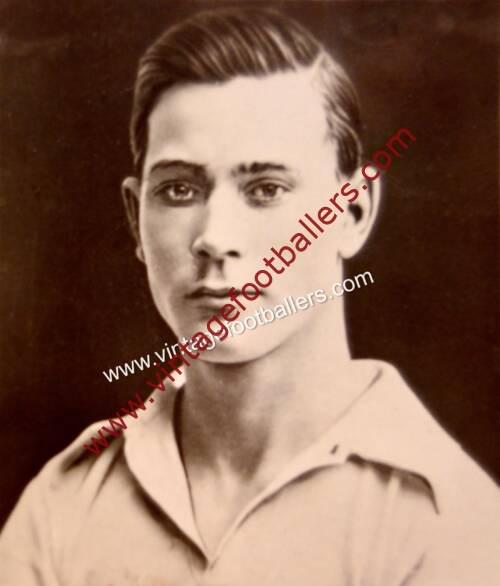Please choose your photo size from the drop down menu below.
If you wish your photo to be framed please select Yes.
Note: 16″x 20″not available in a frame.
Images can also be added to accessories. To order please follow these links
£8.95 – £49.95
Please choose your photo size from the drop down menu below.
If you wish your photo to be framed please select Yes.
Note: 16″x 20″not available in a frame.
Images can also be added to accessories. To order please follow these links
Glasgow born centre forward John Cameron began his career with local club Ayr Parkhouse in 1891, before moving to Scottish League amateur club Queen’s Park in early 1892. He made 5 Glasgow Cup appearances and scored one goal for the Spiders and still an amateur he joined First Division Everton in 1895, making his Football League debut in a 5-0 home win over Sheffield United in October 1895. Cameron produced some excellent displays for Everton and made 48 appearances scoring 14 goals for The Toffees. Cameron had been one of the highest earning footballers of the day with Everton.
He returned to Queen’s Park for two short spells in the second half of the 1895-96 season, making four appearances and also he won a full international cap for Scotland in March 1896. Alongside Robert Smyth McColl, he played in a 3-3 draw with Ireland at Solitude, Belfast, and helped Scotland win the British Home Championship. In February 1898 while Cameron was contracted to play for Everton he became involved in the movement toward unionisation of footballers in defiance of both League directives and club proposals which resulted in the power of players to seek high earnings. As the League were not willing to negotiate on this point Cameron broke his contract with Everton and went to play for Tottenham Hotspur in the Southern Football League directly because that League did not support the proposal to limit earnings.
In May 1898 Cameron was signed by Frank Brettell as a player for Tottenham Hotspur. In February 1899 he succeeded Brettell when he became player-manager and enjoyed instant success when, in his first game in charge, Tottenham became the first lower division club ever to come from behind against top flight opposition to win an FA Cup tie with Cameron himself scoring the winning goal against Sunderland. In 1900 he led Tottenham to the Southern League Championship and in 1901 he led them to victory in the FA Cup Final. After drawing 2-2 with Sheffield United, Tottenham eventually won the replay with Cameron scoring the opening goal in a 3-1 win. As a result, Tottenham became the only club outside the English League to win the competition. They also won the Sheriff of London Charity Shield in 1902. Under Cameron the club also finished as runners-up in the Southern League in 1902 and 1904. During his career with the club, Cameron scored 139 goals in 293 appearances, including 43 goals in 111 appearances in the Southern League. He resigned as Tottenham manager in March 1907.
After Tottenham Hotspur, Cameron went to Germany to coach Dresdner SC. While there the First World War broke out and he was subsequently interned at Ruhleben, a civilian detention camp in the Spandau district of Berlin. The camp contained between 4,000 and 5,500 prisoners. Gradually a mini-society evolved and football became a popular activity. Cup and league competitions were organised and as many as 1,000 attended the bigger games. Cameron was prominent in organising and playing football within the camp and was secretary of the Ruhleben Football Association. During his time at the camp he was also a member of the Ruhleben Tennis Association. Cameron was one of several former professional footballers at Ruhleben. Others included former England internationals, Fred Spiksley, Fred Pentland, Samuel Wolstenholmeand Steve Bloomer, a German international Edwin Dutton and one of his former Tottenham players, John Brearley. On 2 May 1915 an England XI featuring Pentland, Wolstenholme, Brearley and Bloomer played a World XI captained by Cameron. After his return from captivity he later managed Ayr United from 1918 to 1919.
| Weight | N/A |
|---|
